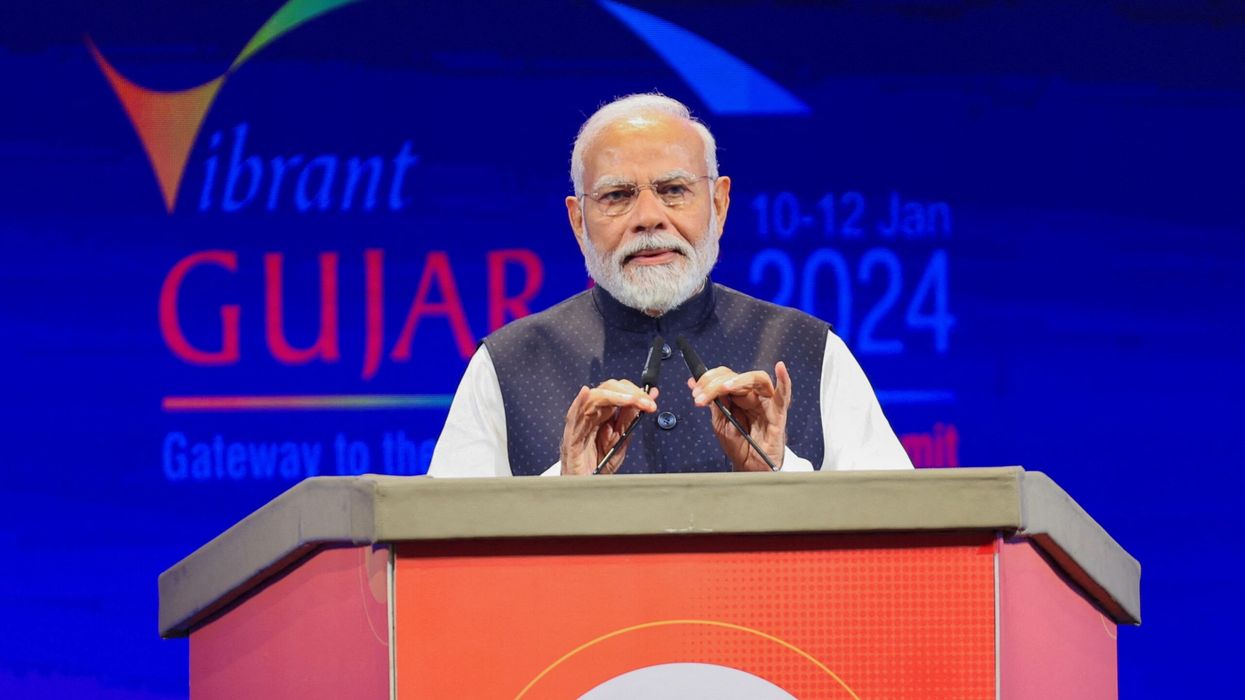INDIA's prime minister Narendra Modi on Wednesday (10) made a strong pitch to woo global investors to the world's fastest growing large economy, saying there are new opportunities across sectors and regions for mutual prosperity.
His pitch at the Vibrant Gujarat Global Summit comes months before he seeks a third term in national elections, in which the economy is a central issue, and also as global businesses look at India to diversify supply chains beyond China.
Modi said the world looks at India as a "powerhouse for talented youth, a technology hub for finding solutions and a democracy that delivers", and the country is on its way to becoming the third largest economy in a few years.
He said India's economy has shown momentum and resilience despite geopolitical troubles around the world and invited investors to be a part of its growth journey.
The prime minister highlighted the goal of India in the next 25 years. "We have the goal of making it a developed country by the time it celebrates 100 years of independence. Therefore, these 25 years' duration is India's Amrit Kaal," Modi said.
At the inauguration ceremony, Gujarat chief minister Bhupendra Patel extended a warm welcome to delegates from over 130 countries.
Patel extended welcome to 34 partner countries and delegates from over 130 nations participating in the Vibrant Gujarat summit. He acknowledged prime minister Modi for extending the concept of 'One Earth, One Family, One Future' globally, and highlighted India's pride in the success of its G20 presidency.
Mukesh Ambani, the Chairman of Reliance Industries, affirmed the company's roots, stating that Reliance has, is, and will always be a Gujarati company. He emphasised the substantial investments made, exceeding $150 billion in the past decade, with more than one-third specifically allocated to Gujarat.
Prominent foreign entities, including Microsoft, Nasdaq, Google, and Suzuki, are active participants in the summit. Among the notable Indian executives attending are Asia's two wealthiest individuals, Gautam Adani and Mukesh Ambani, alongside N Chandrasekaran, the chairman of Tata Group.
As Gandhinagar prepares for the event, comprehensive security measures are in place, featuring 3-D mapping of venues utilising drones, decentralised command and control centers, and strategically placed CCTV cameras.
Mahatma Mandir, Sector-17 Exhibition Center, and GIFT City will host various programmes, each underlined by meticulous security arrangements.
(Agencies)





